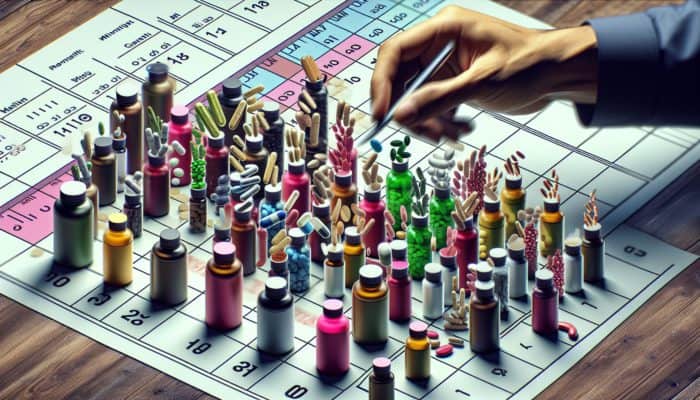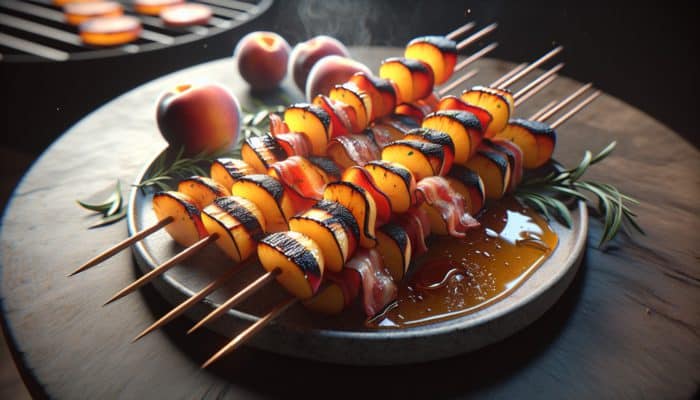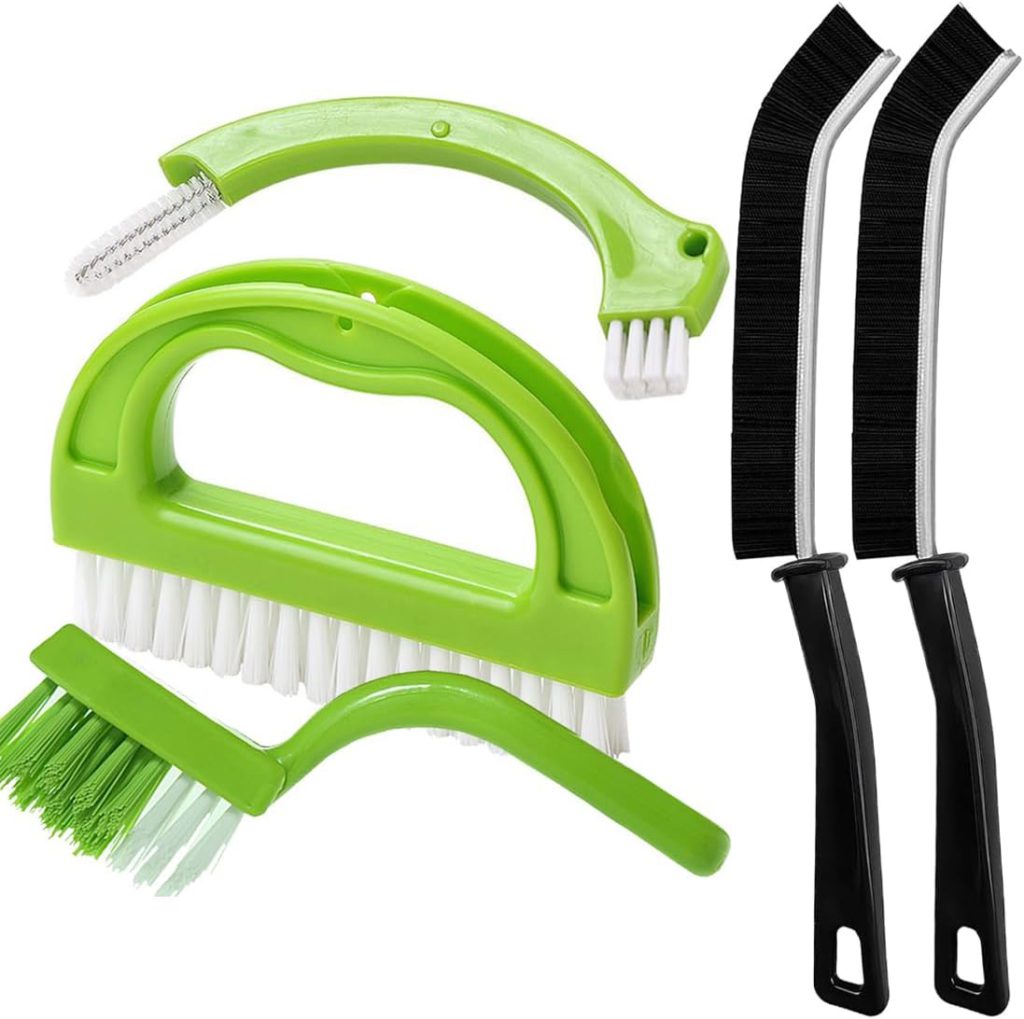Discover the Dynamic Realm of Pet Art Competitions
Understanding the Significance of Pet Art Competitions for Artists and Pet Lovers

Pet art competitions are vibrant and engaging events that invite talented artists to create stunning works inspired by animals, particularly cherished household pets. These competitions celebrate the profound bond between humans and their furry companions, providing an exciting platform for artistic expression that resonates deeply with pet lovers across the globe. Artists have the opportunity to portray their own pets or encapsulate the essence of different breeds, intricately illustrating their unique personalities and quirks through a variety of artistic mediums. Beyond simply recognising individual talent, these contests foster a sense of community among pet enthusiasts, who share a mutual love for both art and animals, culminating in a joyful celebration of creativity and companionship.
Uncover the Advantages of Participating in Pet Art Competitions
Engaging in pet art competitions offers a rich and fulfilling experience for artists, presenting numerous advantages that extend far beyond the thrill of competition. Firstly, these contests allow artists to hone their artistic skills, challenging their creativity and pushing their artistic boundaries. Furthermore, they cultivate a vibrant community among pet lovers, nurturing connections that often evolve into collaborations and lasting friendships. Additionally, participants frequently gain opportunities for recognition, rewards, or exposure that can significantly elevate their artistic careers. The key benefits of entering pet art competitions include:
- Skill enhancement through hands-on experiences and constructive feedback from judges and peers.
- Networking opportunities with fellow artists and passionate pet enthusiasts, leading to valuable collaborations.
- Potential rewards, which may include cash prizes or art supplies to further artistic pursuits.
- Increased visibility and acknowledgment within the artistic community, helping to build a personal brand.
- A delightful way to celebrate and honour the joy of pets through creative expression.
- Opportunities to advocate for animal welfare issues through art.
- Promotion of creative exploration and expression in various artistic forms.
The fusion of art and pets provides a remarkable opportunity for artists to celebrate the beauty of the human-animal bond, making participation in these competitions a genuinely enriching endeavour that cultivates both personal and professional growth.
Steps to Kickstart Your Journey in Pet Art Competitions
To embark on your exciting adventure in the realm of pet art competitions, aspiring artists should begin by conducting thorough research on the various competitions available. Numerous contests are held globally, catering to a wide array of artistic styles and mediums, from traditional painting to modern digital art. Once a suitable competition is identified, artists must prepare their artwork in accordance with the specific rules and guidelines set forth by the organisers. This preparation may involve selecting the appropriate medium, adhering to theme requirements, and ensuring that submission formats comply with specified criteria. Timing is crucial; artists must ensure their entries are submitted before the competition deadline to avoid disqualification. Following these guidelines closely is essential to secure a successful entry with a strong chance of winning. Starting with smaller, local competitions can provide invaluable experience before progressing to larger, more competitive events.
Inspiring Creative Themes for Your Pet Art Competition Submissions
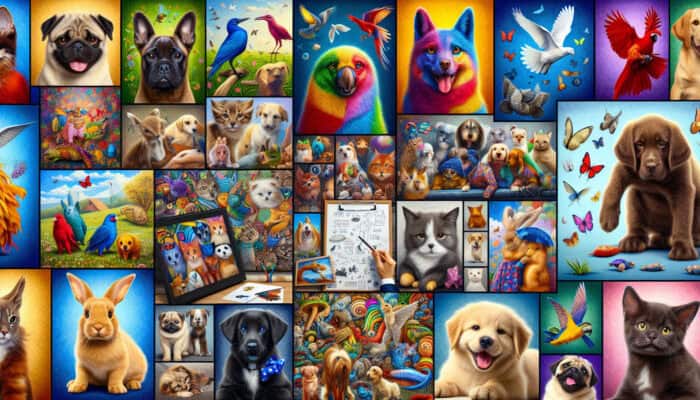
The themes presented in pet art competitions frequently serve as powerful sources of inspiration for artists, motivating them to explore various facets of pet life and their relationships with animals. Common themes include pet portraits, which allow artists to capture the likeness of their beloved companions, and pets in costumes, where creativity flourishes as artists design whimsical outfits that reflect their pets’ unique personalities. Themes such as pets in action emphasise dynamic representations of animals engaged in playful or exploratory activities. These themes not only pose a creative challenge but also enable artists to highlight the distinctive personalities and stories behind each pet. By tapping into these popular themes, artists can create impactful works that resonate with both judges and audiences alike, enhancing their chances of success in competitions.
Insights from Experts on Pet Art Competitions
Key Characteristics of Winning Pet Art Entries
A winning entry in a pet art competition captivates by effectively capturing the very essence of the pet, showcasing not only technical skill but also emotional depth. Judges typically seek artwork that resonates on a personal level, often looking for elements that reflect the unique personality and spirit of the pet being portrayed. The use of high-quality materials and techniques is vital; incorporating vibrant colours, intricate details, and compelling compositions can dramatically elevate an entry. For instance, a memorable submission might depict a dog joyfully bounding through a field, with the artist skillfully illustrating the texture of the fur and the joy in the animal’s expression, drawing viewers into the moment.
Real-world examples of winning submissions frequently highlight these qualities. Artists who have previously earned accolades often emphasise their connection to the pet, conveying a story or emotion through their work. Such narratives resonate deeply with judges, adding layers of meaning to the artwork. Ultimately, the combination of creativity, robust technical execution, and an emotional connection to the subject matter is what distinguishes winning entries from the rest of the competition, making them memorable and impactful.
Strategies for Artists to Enhance Their Pet Artwork
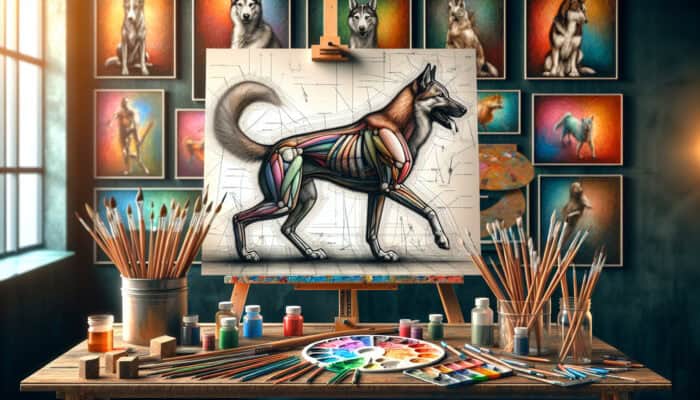
Artists aiming to elevate their pet artwork should adopt a holistic approach to their development. Understanding animal anatomy is essential, as this knowledge enables artists to depict pets more realistically and dynamically, capturing their spirit and movement. Regular practice is equally crucial; artists should dedicate time to sketching and painting pets in various poses and contexts to refine their skills. Moreover, seeking constructive feedback from peers can provide invaluable insights into areas for improvement, fostering a growth mindset that is essential for artistic development.
Experimenting with different mediums—such as watercolours, acrylics, or digital software—can also lead to exciting artistic breakthroughs. For instance, an artist may discover a natural affinity for digital painting, which offers greater flexibility in style and execution. Setting specific goals, such as mastering pet portraits or exploring mixed media techniques, can further guide artistic growth. By incorporating these strategies into their practice, artists can significantly enhance the quality and impact of their pet artwork, making their submissions more competitive in art contests.
Current Trends Shaping Pet Art Competitions
Emerging trends in pet art competitions reflect a changing landscape influenced by technology and social consciousness. A prominent trend is the rising popularity of digital art, where artists utilise software to create intricate illustrations of pets that can be easily shared online. This evolution opens new creative avenues, allowing artists to experiment with styles and techniques that may not be achievable through traditional mediums, thus broadening their artistic reach.
Another noteworthy trend is the incorporation of interactive elements in artwork, such as augmented reality features that enable viewers to engage with the art in innovative ways. Additionally, there is a growing emphasis on themes related to pet adoption and animal welfare. Competitions that focus on these topics not only showcase artistic talent but also raise awareness for significant causes, engaging a wider audience in meaningful discussions. This trend illustrates a societal shift towards prioritising animal welfare and responsible pet ownership, aligning artistic expression with impactful social change.
Benefits of Pet Art Competitions for Artists and Pet Owners
Pet art competitions provide substantial advantages for both artists and pet owners, creating a mutually beneficial environment that enriches the community. For artists, these competitions serve as platforms for exposure, allowing them to showcase their work to a broader audience and potentially gain recognition within the artistic community. The opportunity to connect with fellow artists and dedicated pet enthusiasts can lead to networking opportunities and collaborations that may not have occurred otherwise, fostering a sense of camaraderie and shared passion.
For pet owners, these competitions offer a unique avenue to celebrate their cherished companions through the artistic interpretations presented. The artwork often serves as a heartfelt tribute to the bond shared with their pets, creating lasting memories that can be cherished for years to come. Furthermore, many competitions incorporate charitable components, allowing entry fees to support animal welfare organisations, thus giving back to the community in a meaningful way. This partnership between artists and pet owners fosters a strong sense of community, highlighting the importance of pet companionship while addressing broader social issues related to animal welfare and responsible pet ownership.
How Pet Art Competitions Foster a Sense of Community
The Impact of Social Media on Pet Art Competitions
Social media serves as a powerful tool for promoting pet art competitions and enhancing community engagement among artists and pet lovers alike. Platforms like Instagram, Facebook, and Twitter enable artists to share their entries, connect with fellow participants, and receive feedback from a global audience. This immediate interaction fosters a sense of belonging among artists who share a common passion for pets and creativity, creating a supportive network that encourages artistic growth.
Contest organisers can leverage social media to boost participation by creating dedicated event pages and employing targeted advertising to reach potential entrants. Engaging content, such as behind-the-scenes glimpses into the judging process or artist spotlights, can attract interest and encourage wider participation. By utilising social media effectively, organisers can generate excitement around the competition, leading to increased visibility and participation rates. Effective social media strategies for pet art competitions include:
- Creating event-specific hashtags for easy tracking and engagement.
- Encouraging participants to share their creative process through posts and stories, fostering a sense of community.
- Hosting live Q&A sessions or webinars to engage with the community and answer questions.
- Collaborating with influencers in the pet and art niches to amplify reach and attract new participants.
Through these strategies, social media becomes an essential component in nurturing a vibrant community surrounding pet art competitions, enhancing connections and fostering collaboration among participants.
Supporting Local Animal Shelters Through Pet Art Competitions
Pet art competitions can play a pivotal role in supporting local animal shelters, creating a win-win scenario for both artists and organisations dedicated to animal welfare. Many contests integrate charitable elements, such as donating a portion of entry fees to shelters or featuring adoptable pets in the submitted artwork. This approach not only generates funds but also increases visibility for animals in need of loving homes, driving community support for shelter initiatives.
By showcasing shelter pets, artists can create compelling narratives that resonate with audiences, encouraging adoptions and fostering empathy towards animals in need. Moreover, events featuring local shelters often lead to partnerships where artists and shelters collaborate on initiatives, such as community art projects or fundraising events. This collaboration emphasises the importance of responsible pet ownership and fosters a strong sense of community engagement. Ultimately, pet art competitions serve as a bridge connecting local artists and animal welfare organisations, amplifying their impact within the community and raising awareness for important causes.
The Social Benefits of Pet Art Competitions
Pet art competitions offer significant social benefits, acting as a catalyst for community building among pet lovers and artists alike. These events provide a platform for individuals to share their experiences, stories, and artistic interpretations of the unique bond between humans and animals. As participants engage with one another, they often form connections that lead to lasting friendships and collaborative projects, enriching their artistic journeys.
Moreover, pet art competitions promote inclusivity by welcoming artists of all skill levels and backgrounds, creating an environment where creativity flourishes. This diversity fosters an atmosphere where participants can learn from each other and explore new artistic techniques. Many events incorporate workshops or discussions, further enhancing the sense of community and providing opportunities for skill development. By bringing together individuals who share a passion for pets and art, these competitions create opportunities for social interaction that can combat feelings of isolation and promote mental well-being within the community.
Encouraging Artistic Diversity Through Pet Art Competitions
Pet art competitions play a pivotal role in promoting artistic diversity, encouraging participants to explore various styles, mediums, and techniques. By providing a platform for artists to showcase their unique approaches to pet art, these competitions celebrate creativity in all its forms and inspire innovation. Artists are empowered to experiment, whether through traditional methods like painting and drawing or contemporary approaches such as digital art and mixed media.
This encouragement of diversity not only enriches the artistic community but also attracts a broader audience. Viewers are captivated by the variety of interpretations, showcasing the unique perspectives each artist brings to their work. Furthermore, exposure to different styles can inspire artists to expand their own practices, leading to innovation and growth in their artwork. This inclusive environment fosters collaboration and learning, making pet art competitions a vital force in nurturing artistic expression and creativity within the community.
The Community Engagement Impact of Pet Art Competitions
Pet art competitions significantly enhance community engagement by involving local stakeholders, including businesses, schools, and residents. These events create opportunities for collaboration, fostering community pride and participation. For instance, local businesses may sponsor prizes or provide venues for exhibitions, while schools might encourage students to participate, integrating art education with community involvement in a meaningful way.
Additionally, competitions often include public exhibitions or showcases where community members can view the artwork and interact with the artists. These events serve as a celebration of local talent and creativity, strengthening community ties and fostering a sense of belonging. The collective effort involved in organising and participating in these competitions cultivates a sense of community empowerment, encouraging residents to connect with one another and support shared passions for art and animals. Ultimately, pet art competitions contribute to a vibrant community atmosphere that enhances overall engagement and cohesion, forging connections among individuals with similar interests.
Exploring the Diverse Categories in Pet Art Competitions
Categories Featured in Pet Art Competitions
Pet art competitions typically showcase a diverse range of categories designed to accommodate different artistic expressions and preferences. Common categories include photography, where artists capture the essence of pets through striking images; painting, which may involve various techniques such as oil, watercolour, or acrylic; and sculpture, allowing for three-dimensional representations of cherished animals that bring them to life.
Some competitions may also introduce categories specifically for digital art, catering to artists who utilise technology to create their works. Furthermore, categorizations may extend to specific types of pets, such as dogs, cats, and even exotic animals like birds or reptiles. These diverse categories encourage artists to explore their creativity and focus on their areas of passion. By offering a variety of options, pet art competitions ensure inclusivity, inviting artists from various backgrounds to participate and showcase their talents, enriching the competition experience.
How Themed Pet Art Competitions Ignite Artistic Creativity
Themed pet art competitions operate by providing artists with specific guidelines that inspire creativity and focus their efforts. Artists are tasked with creating works that align with a predetermined theme, such as “Pets in Nature” or “Celebrating Pet Adoption”. These themes often encourage participants to think outside the box, pushing the limits of their creativity and interpreting the theme in personal and unique ways that reflect their individual artistic voices.
Themes can also stimulate discussions surrounding relevant issues, such as animal welfare or the joys of companionship. For example, a contest centred on “Rescue Pets” could prompt artists to highlight the importance of adopting animals from shelters, raising awareness and encouraging responsible pet ownership within the community. Themed competitions not only provide structure but also foster a sense of community as participants share their interpretations, engaging in conversations that enrich the overall experience. This collaborative spirit enhances the vibrancy of the competition while promoting artistic exploration and dialogue.
Essential Rules and Guidelines Governing Pet Art Competitions
Rules and guidelines for pet art competitions can vary by event but typically encompass essential information regarding entry deadlines, submission formats, theme requirements, and judging criteria. Artists are often required to adhere to specific dimensions for their artworks, as well as guidelines for file types if submissions are digital. Additionally, competitions may outline eligibility criteria, such as age restrictions or residency requirements that must be taken into account.
It is crucial for entrants to carefully read and follow these rules to ensure their works are eligible for consideration. Non-compliance with guidelines can lead to disqualification, making attention to detail vital for success. Clear communication from competition organisers establishes expectations and helps artists prepare their submissions efficiently and effectively. By adhering to these rules, artists not only increase their chances of success but also help foster a professional environment that encourages quality and creativity, elevating the standard of entries.
Types of Prizes Awarded to Winners of Pet Art Competitions
Prizes for winning pet art competitions can vary widely, ranging from cash awards to gift certificates, art supplies, and recognition within the art community. Many contests offer tangible rewards that support artists in continuing their creative endeavours, such as gift cards to art supply stores or subscriptions to digital art platforms, providing them with resources to further their artistic journey.
Recognition might manifest as trophies, ribbons, or features in exhibitions, showcasing the accomplishments of the winners and providing a platform for their work. For instance, some competitions may offer opportunities for the winning artworks to be displayed in galleries or featured in publications, further amplifying the artists’ visibility. The allure of these prizes motivates participants to put forth their best efforts, fostering a competitive spirit that drives artistic excellence. Ultimately, the combination of rewards and recognition serves to celebrate creativity and encourage ongoing artistic pursuits, enriching the artistic community.
Effective Strategies for Promoting Submissions in Pet Art Competitions
Artists can effectively promote their submissions in pet art competitions through a multi-faceted approach that leverages various platforms and strategies. Utilising social media is one of the most powerful methods for increasing visibility; artists can share their works on platforms like Instagram and Facebook, engaging with followers and encouraging them to vote or participate in the competition.
Additionally, artists should consider creating content that showcases their creative process, such as behind-the-scenes videos or progress photos. This transparency not only builds excitement but also allows followers to connect with the artist on a personal level, fostering a deeper appreciation for their work. Participating in online art communities can further enhance exposure, as artists can share their entries within groups dedicated to pet art or related themes. Networking with fellow participants and contest organisers can also lead to increased visibility, as collaboration and mutual support often yield positive results. By employing these strategies, artists can maximise their chances of gaining recognition and success in pet art competitions, boosting their artistic profiles.
Research-Backed Advantages of Participating in Pet Art Competitions
Enhancing Artistic Skill Development Through Competitions
Participating in pet art competitions can significantly enhance an artist’s skills, offering a structured environment where creativity is challenged and nurtured. These competitions often provide specific themes or prompts, pushing artists to think critically and creatively, which can lead to substantial growth in their artistic capabilities. Feedback from judges and peers serves as valuable input, allowing artists to identify areas for improvement and refine their techniques effectively.
Additionally, the competitive nature of these contests motivates artists to strive for excellence, experimenting with new styles and mediums to distinguish themselves from other entrants. Through this process, artists often discover their unique voice and develop a personal style that resonates with their audience. The opportunity to learn from observing the work of fellow contestants can also inspire innovation, as artists are exposed to diverse interpretations and techniques that can enhance their own artistry. By engaging in pet art competitions, artists not only enhance their skills but also cultivate a mindset geared toward continuous improvement and exploration, fostering a lifelong passion for their craft.
The Psychological Benefits Gained from Participating in Pet Art Competitions
Pet art competitions provide substantial psychological benefits, serving as a creative outlet that fosters mental well-being. Engaging in artistic activities has been shown to reduce stress and anxiety, providing individuals with an effective means of expression that can be particularly therapeutic. For many artists, creating pet art becomes a fulfilling process that strengthens their bond with their animals while offering a sense of accomplishment and joy.
The communal aspect of these competitions further enhances their psychological benefits, as participants connect with like-minded individuals who share a passion for art and animals. This sense of belonging can combat feelings of isolation and promote positive mental health, creating a supportive environment where artists can thrive. Additionally, the recognition that comes from participating in competitions can boost self-esteem and confidence, encouraging artists to pursue their passions more vigorously. By creating an environment that supports creativity and community, pet art competitions contribute to overall mental wellness and personal fulfilment, enriching the lives of those involved.
The Contribution of Pet Art Competitions to Animal Welfare Initiatives
Pet art competitions contribute to animal welfare in several impactful ways, often serving as a platform for raising awareness about animal-related issues. Many contests direct a portion of entry fees to support animal shelters or charities focused on pet welfare, providing essential funding for their operations. This financial support helps shelters cover costs related to food, medical care, and adoption programs, ultimately improving the lives of animals in need within the community.
Additionally, contests that highlight themes related to pet adoption or animal rescue play a crucial role in promoting responsible pet ownership. By showcasing adoptable pets in artwork, artists can create compelling narratives that resonate with audiences, encouraging adoptions and fostering empathy towards shelter animals. The positive publicity generated by these competitions can lead to increased community support for local animal welfare organisations. Through these efforts, pet art competitions not only celebrate artistic expression but also make a tangible difference in the lives of animals and the communities that care for them, reinforcing the vital connection between art and social responsibility.
Understanding the Judging Process in Pet Art Competitions
Criteria Used by Judges in Pet Art Competitions
Judges in pet art competitions evaluate entries based on a range of criteria that assess both technical skill and emotional resonance. Key factors include creativity, where artists are expected to present unique interpretations of the theme; technical skill, which examines the artists’ mastery of their chosen medium; and adherence to the contest theme, ensuring that submissions align with the specified prompt. Emotional impact is another critical consideration, as judges often look for artwork that evokes feelings or tells a compelling story about the animal portrayed.
In some competitions, the narrative behind the artwork may also be considered, allowing judges to appreciate the artist’s connection to the subject matter. By applying a holistic approach to judging, contests can identify exceptional works that resonate on multiple levels, ensuring that the best entries receive recognition. The combination of these criteria fosters a competitive environment that encourages artistic excellence and innovation, setting a high standard for participants and enhancing the overall quality of submissions.
Preparing for Judging in Pet Art Competitions
Preparation for judging in pet art competitions requires a thoughtful approach that encompasses understanding the contest’s criteria and ensuring that submissions are polished and well-presented. Artists should begin by carefully reviewing the contest guidelines, paying particular attention to judging criteria and submission requirements. This foundational knowledge enables artists to tailor their entries effectively to meet expectations and maximise their chances of success.
Feedback from peers can be invaluable in the preparation process; artists should consider seeking critiques from fellow participants or mentors to gain insights into their work and refine their techniques. Additionally, investing time in practice and refinement can enhance technical skills and overall presentation. For example, artists might undertake multiple revisions of their entry to ensure it meets their highest standards before submission. By approaching the preparation process with intention and diligence, artists can maximise their chances of impressing judges and achieving success in pet art competitions, setting themselves apart from the competition.
Common Judging Formats in Pet Art Competitions
Common judging formats in pet art competitions can vary based on the event’s structure and objectives. One popular format is blind judging, where judges evaluate entries without knowing the identities of the artists. This approach helps to eliminate bias and ensures that selections are made purely on the merit of the artwork itself, fostering fairness in the judging process.
Public voting is another prevalent format, allowing audiences to participate in selecting winners. This interactive element not only engages the community but also provides artists with feedback on their work from viewers, creating an inclusive environment. Some competitions utilise a combination of both judging formats, where judges provide initial assessments, and the public votes on the finalists. This hybrid approach fosters transparency and inclusivity, creating a dynamic environment that celebrates the artistic contributions of all participants, enhancing community connection.
Winning Strategies for Success in Pet Art Competitions
Choosing the Right Pet Art Competition for Success
Selecting the most suitable pet art competition is a strategic decision that can significantly influence an artist’s chances of success. Artists should start by evaluating their artistic style and the types of pets they wish to feature in their work, ensuring alignment with their strengths and interests. Contests that resonate with an artist’s vision are likely to yield more authentic and compelling entries that showcase their unique perspective.
Researching past winners and examining the types of artwork that have achieved success can provide valuable insights. This information can inform artists about the competition’s aesthetic preferences and help them tailor their submissions accordingly. Additionally, considering the contest’s theme and eligibility requirements is crucial; artists should opt for competitions that resonate with their artistic vision while ensuring they meet all criteria. By making informed decisions, artists can enhance their prospects and discover contests where their work will be appreciated and recognised, ultimately boosting their chances of achieving success.
Creating Captivating Pet Art: Strategic Approaches for Artists
Creating captivating pet art requires a blend of technical skill, emotional depth, and an understanding of audience preferences. One effective strategy is to capture the unique personality of the pet, focusing on expressions, gestures, and distinctive traits that make the animal special. This attention to detail can evoke an emotional response from viewers, making the artwork more impactful and memorable.
Moreover, using high-quality materials can elevate the overall presentation of the piece. Whether it’s selecting vibrant paints or durable canvases, the choice of materials can significantly influence the final outcome and impact of the artwork. Experimenting with different artistic techniques—such as layering, texture application, or colour blending—can also enhance the visual appeal of the artwork. Finally, aligning the artwork with the contest’s theme while considering the preferences of the target audience can drive engagement and increase the likelihood of success. By employing these strategies, artists can create pet art that resonates deeply with viewers and stands out in competitions, elevating their artistic careers.
Maximising Exposure for Pet Art Submissions
Maximising exposure for pet art submissions involves a proactive approach that leverages various platforms and community engagement. Social media plays a critical role; artists should share their work on platforms like Instagram, Facebook, and Twitter, utilising relevant hashtags to increase visibility and attract attention to their entries. Engaging with followers through comments and shares can amplify their reach and foster a supportive network of art enthusiasts.
Participating in online art communities and forums can also enhance exposure, as these platforms provide opportunities for artists to showcase their work and connect with potential supporters who share similar interests. Networking with other participants and contest organisers can lead to collaborations and increased visibility within the art community. Additionally, artists should consider creating engaging content, such as videos highlighting their creative process, which can resonate with audiences and encourage sharing. By employing these strategies, artists can enhance their presence and recognition in pet art competitions, increasing the likelihood of success and furthering their artistic journeys.
Frequently Asked Questions About Pet Art Competitions
What Types of Artworks Are Accepted in Pet Art Competitions?
Pet art competitions typically accept a variety of artistic forms, including paintings, photography, sculptures, and digital art, allowing artists to express their creativity through diverse mediums and styles.
Are There Age Restrictions for Participating in Pet Art Competitions?
Many pet art competitions have specific age categories, but some may be open to all ages. It’s essential for artists to review the eligibility criteria for each contest to ensure compliance and participation.
How Can I Find Pet Art Competitions to Enter?
Artists can discover pet art competitions through online searches, social media platforms, local art organisations, and community bulletin boards that list upcoming events and opportunities to participate.
What Should I Include in My Submission for a Pet Art Competition?
Submissions typically require the artwork, a title, and an artist statement explaining the concept and inspiration behind the piece. Additionally, artists must adhere to the contest’s specific rules and guidelines to ensure eligibility.
Is There an Entry Fee for Pet Art Competitions?
Many pet art competitions require an entry fee, which often supports animal welfare organisations or contest expenses. Fees can vary, so it’s important to check the specific requirements and ensure compliance.
Can I Submit Artwork of My Own Pet?
Absolutely! Many competitions encourage artists to submit artwork featuring their own pets, as this can lead to more personal and emotive pieces that resonate with both judges and audiences.
How Are Winners Selected in Pet Art Competitions?
Winners are typically chosen based on criteria such as creativity, technical skill, and adherence to the contest theme. Judging formats may vary, including blind judging or public voting, ensuring a fair selection process.
What Are the Benefits of Entering Pet Art Competitions?
Participants can enhance their artistic skills, gain exposure, network with other artists, and potentially win prizes while celebrating their love for pets through creative expression that resonates with audiences.
Can I Promote My Artwork After Submitting It to a Competition?
Yes, artists are encouraged to promote their artwork after submission, but it’s essential to respect the contest’s rules regarding publicity and voting procedures to maintain integrity.
How Can Pet Art Competitions Help Raise Awareness for Animal Welfare?
Many competitions donate entry fees to local shelters or feature themes related to pet adoption and welfare, creating a platform for advocacy and education about responsible pet ownership and animal welfare issues.
Connect with us on Facebook!
The Article Art Contests Featuring Pets: Unleash Creativity First Published On https://elgatoencasa.com
The Article Pet Art Contests: Ignite Your Creativity Was Found On https://limitsofstrategy.com
